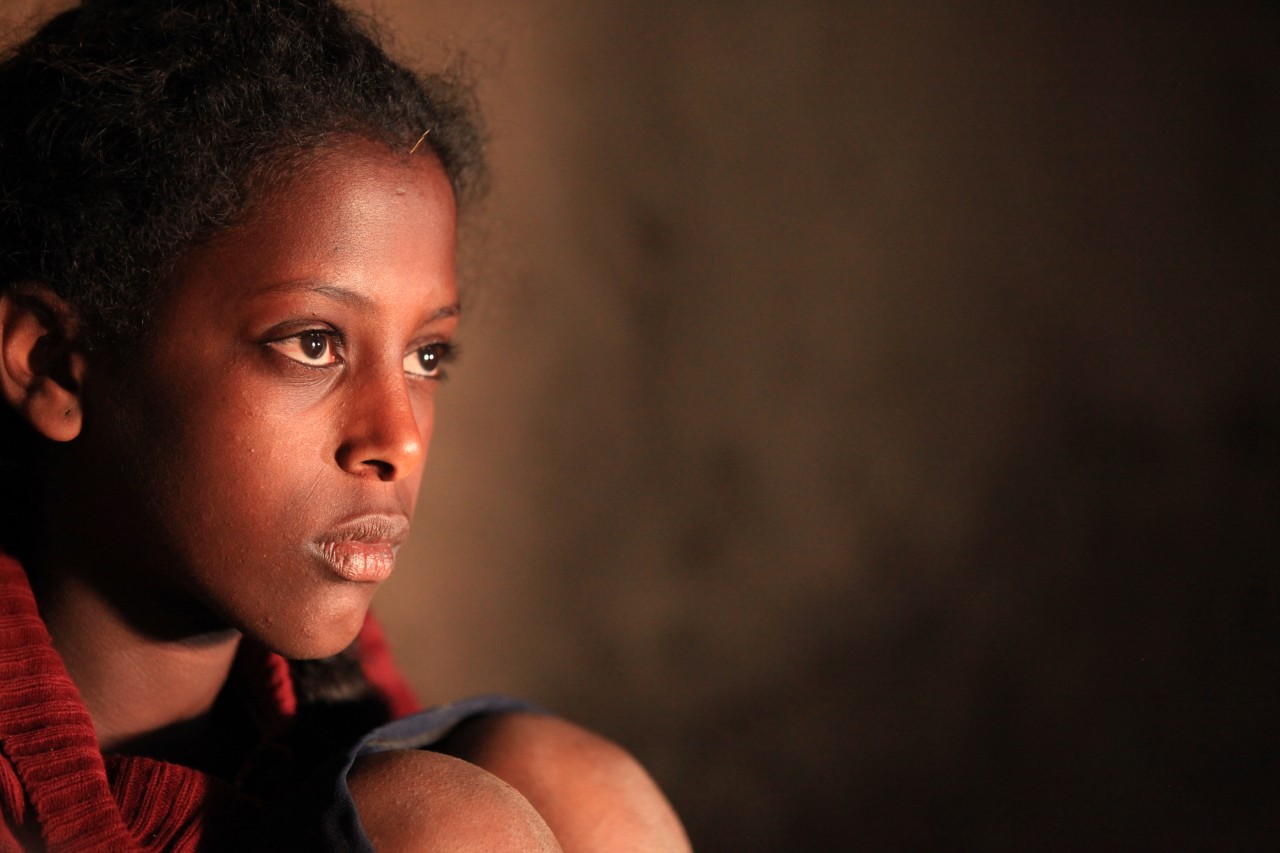Difret is the Sundance Festival award-winning movie that explores an intriguing legal case as it unfolds in Ethiopia in 1996. The case, which is based on true life events, revolves around 14–year–old Hirut, and a spirited lawyer, Meaza Ashefani, who decides to defend her in court for free, following charges levied against Hirut for murder.
Hirut’s legal woes follow events that result from her abduction and rape, as part of a marriage rite known as ‘telefa’ which traditionally occurs in Ethiopia. One day, she manages to escape from her abductors, taking one of their guns, and eventually kills her would-be-husband and attacker in the heat of a chase down.
The film, which Angelina Jolie Pitt is Executive Producer, is directed by Zeresenay Berhane Mehari and highlights telefa, the problematic traditional Ethiopian practice of abduction for marriage, and how Hirut’s case brought about a social change that led to its end. Beyond that, it exposes the common African practice of child marriage which is still an issue in most countries in Africa till date.
Difret’s success lies in part with its subject matter, as happens to be the case with a lot of African or Africa–based films that make it to Hollywood. These films usually shed light on various social and cultural issues that have plagued the continent.
Hollywood audiences, and perhaps the rest of the world, appear to be more interested in films that portray Africa’s despairs, probably based on the attention and success that they are bound to receive. This is also quite a general habit in media- bad news tends to move quicker.
Films such as Tsotsi, which won the Oscar for Best Foreign Language Film in 2006, Sometimes in April (2005), Blood Diamond (2006), Moolade (2004), 678 (2010), and newcomer, Beasts of No Nation (2015) are popular instances of this kind of representation, which continues to beg the question: Are these the only stories Africa has to tell?
These narratives often misconstrue African stories or tell them from an outsiders perspective. However there’s more to it than that. Despite the discomfort that comes with telling of these kind of African stories, they also play their part in gradually but surely facilitating recognition and support for the fight against some of these harmful traditions and practices on the continent. In this case, the plight of the girl child.
In the majority of developing countries across the globe, particularly in rural areas, one in every three girls is married off against her will before she turns 18. The International Centre for Research on Women (ICRW) underscores that child marriage is abusive, and thus violates the human rights of girls.
The film Moolaade (2004), which was centered around the practice of female genital mutilation (FGM) contributed to conversations that help build awareness of the harmful practice. Based on the growing awareness, African and international organisations, such as Amnesty International Ireland who leads the End FGM campaign in Europe, as well as concerned individuals, such as Senegalese rapper Sister Fa, are working tirelessly to put an end to the practice worldwide.
Following Difret’s positive reception, the real life Hirut, Aberash Bekele, has been able to return home from her self-induced exile. Last month, the filmmakers of Difret approached the US government with their petition (which was launched six months ago) in order for the country to develop a strategy and help put an end to child marriage. Ethiopia plans to end child marriage completely by 2025.
Certain cultural and traditional practices cannot be changed overnight, as they are deeply ingrained in the regions where they are found, but enlightenment and information for the involved parties, both men and women, go a long way in support. Films will continue to remain one of the tools for educating people on sensitive issues, and organisations or human rights bodies such as WHO, UNICEF, UNESCO, and the UN, as well as governments globally, endlessly initiate strategies and policies to bring an end to these practices.
Hollywood might be solely interested in one type of ‘Africa film’, but African filmmakers have long taken the task of telling our own stories into their own hands. And nonetheless, stories like those represented in Difret are real. The focus should be on telling these stories –whatever they may be – thus gearing the continent to move past these ‘tragic’ histories, towards a positively and fully developed future, both in popular culture and in reality.
Source: Cynthia Okoroafor, Ventures Africa




